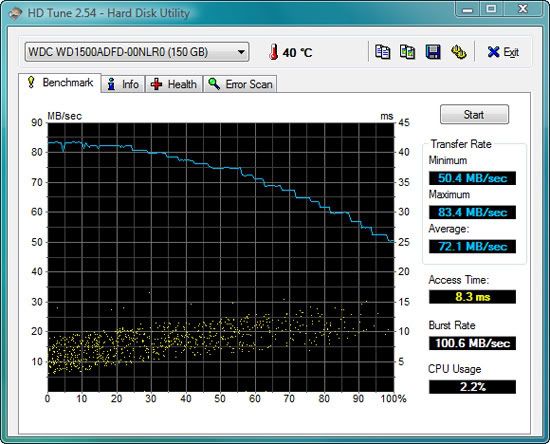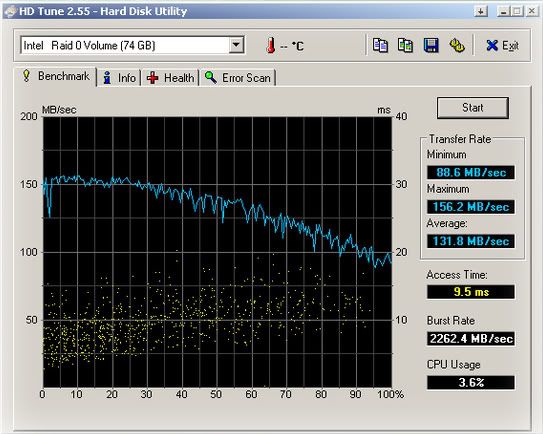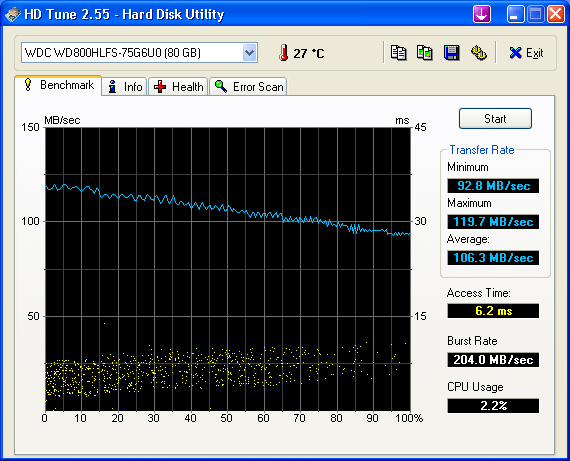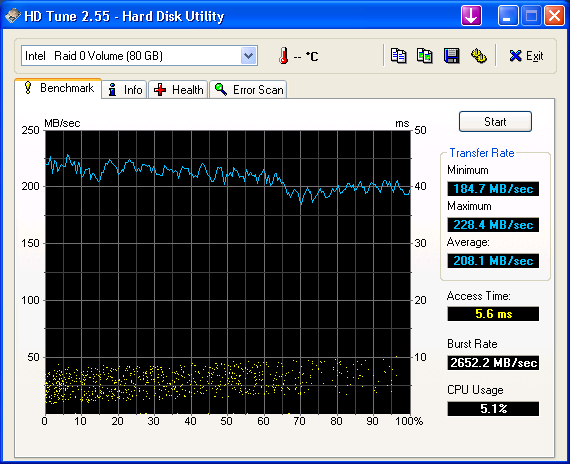You are using an out of date browser. It may not display this or other websites correctly.
You should upgrade or use an alternative browser.
You should upgrade or use an alternative browser.
Western Digital Raptor vs. Velociraptor?
- Thread starter EGS
- Start date
WhiteFireDragon
New Member
velociraptors have the same cache and RPM as old raptors, but they're overall faster, consume less power, and quieter, and does not put out as much heat compared to regular raptors. this is mainly because of newer technology and denser platters, so they're able to fit them in a 2.5" form factor instead of the normal 3.5". here's a few benchmarks of normal raptors compared to my own data on the VR's:
regular raptors in single

regular raptor in 2x RAID-0

velociraptor in single

velociraptor in 2x RAID-0

regular raptors in single

regular raptor in 2x RAID-0

velociraptor in single

velociraptor in 2x RAID-0

Last edited:
That's pretty much all there is to it. They are faster because they hold the same capacity but on a much smaller platter. There's a few other things on them as well that make them faster in certain usage situations but they have no where near the same performance change as the platters.this is mainly because of newer technology and denser platters
Is it true that lower capacity (ie, smaller hard drive) VelociRaptors are faster than the higher capacity ones? If so, how is that possible? I thought they'd be the same speed...but the bigger the hard drive, the slower it is?
If you have 2 identicle drives (same # of platters, same RPM, etc) except 1 is 100GB and one is 200GB the 200GB drive is faster.
If you have 2 identicle drives except one is 2.5" and the other is 3.5" the 2.5" drive is faster. This is the same concept as the 100GB vs 200GB example.
Last edited:
WhiteFireDragon
New Member
If you have 2 identicle drives (same # of platters, same RPM, etc) except 1 is 100GB and one is 200GB the 200GB drive is faster.
If you have 2 identicle drives except one is 2.5" and the other is 3.5" the 2.5" drive is faster. This is the same concept as the 100GB vs 200GB example.
i dont think that's true. the same family of drives but having different capacities means there are just less platters, but the density on each platter is still the same. for example, if you compare a 300gb VR to a 150gb VR, the 300gb one has two platters of 75gb on both sides of each platter, where as the 150gb one only has one platter (75gb on each side). if you look at all WD hard drives (not just raptors and VR's), this is how they've always done it.
WhiteFireDragon
New Member
ah i get what you're saying too. comparing a 3.5" raptor with a 2.5" raptor both with 150gb would mean the 2.5" would be faster due to denser platter.
i think OP was asking about the same family of drives though, comparing only the capacity in velociraptors.
i think OP was asking about the same family of drives though, comparing only the capacity in velociraptors.
